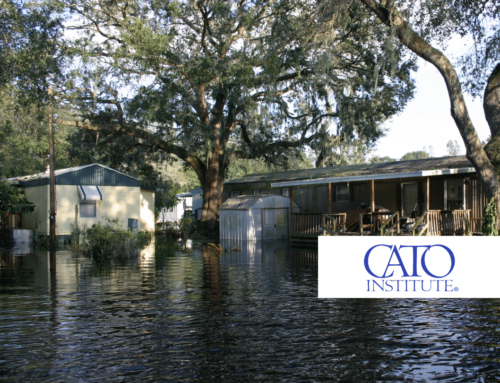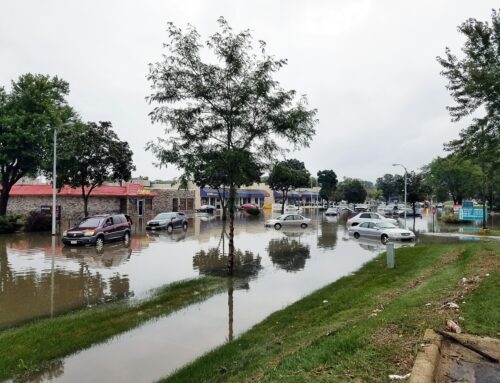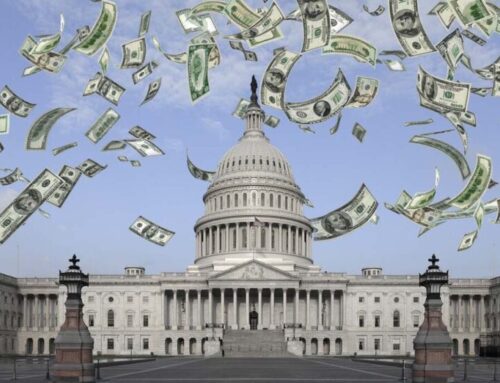There is no good time to talk about how best to reform the ways we respond to a disaster, how to make sure that every dollar of relief goes towards the highest priority needs and how to make sure when communities do respond to disasters, they do so with an eye towards preventing harm when the next flood, fire or tornado comes.
In the immediate aftermath of a disaster, reform is the last thing on people’s minds; when disasters have faded from memory, Congressional and public interest in having difficult discussions is all but nonexistent.
But as Congress looks at passing emergency supplemental bills to ensure that the Federal Emergency Management Agency and others can responsibly meet the immediate and future needs of those impacted by Harvey, and looks ahead to the potential damage caused by Irma, now is as good of a time as ever to consider our policies as a country and what we can do to improve them.
First, let’s look at the current federal structure in place for responding to disasters like Harvey. The first and most immediate assistance is provided from the Disaster Relief Fund, quite literally the country’s rainy day fund. Money from the Disaster Relief Fund can go straight to the communities in need the minute the president declares a major disaster to provide assistance for evacuation, temporary housing, hazard mitigation, debris removal, repair and some reconstruction. Congress does not need to appropriate new funds for FEMA to be able to provide this immediate assistance. At the end of the month of August, the balance in the Disaster Relief Fund was nearly $1.3 billion. The bill passedby the House of Representatives this week is mostly to replenish that fund.
The next form of federal support in the case of flooding events is the National Flood Insurance Program, set to expire at the end of this month. To date, federal flood insurance is the only flood insurance most homeowners can access although private sector alternatives are growing if lawmakers allow rates to rise. Created nearly 50 years ago, the federal flood insurance idea was to give homeowners a stake in preventing flood harms – and to be more economically efficient than simply providing immediate disaster assistance. The problem is that the way the program has evolved had the opposite effect – many premiums are artificially low, and now the program is in close to perpetual debt to the US Treasury. (The current debt is almost $25 billion).
Finally, as we will see in the coming months, Congress can pass an emergency supplemental appropriations bill to provide additional funds for communities hard hit by major disasters. We are a compassionate country, and even the most ardent supporters of small government support providing for communities devastated by natural disasters like Harvey.
But all of these steps taken together have the effect of masking the true cost of disasters and floods to the communities and individuals that experience those disasters. This is not to say that the residents of Houston and other areas of Texas are not suffering, but instead of simply providing assistance to rebuild all that was just destroyed, we need to develop a policy that takes people and their property out of harm’s way. Instead of reflexively offering support to property owners and cities to rebuild, we should step back and look for ways to make sure the next storm hurts fewer people and destroys less property. This could be requiring shift in policy to make it easier for FEMA to buy out property owners, allowing them to move to less dangerous ground rather than rebuilding. Or it could be providing incentives to communities that take steps to prevent future harm – by tying federal assistance to adopting building codes and practices to reflect the risks those communities face (requiring basements in tornado zones, increasing wetlands or requiring elevation and fortification in flood zones). Or withholding federal funds from development projects that fail to take strong steps to prevent loss of life and property in the event of a major hurricane, wildfire, or tornado.
We will never know exactly when the next disaster will strike. But as long as we continue to set disaster-related policy based solely on the current suffering of victims rather than preventing harm in the future, people will suffer needless harms and taxpayers will lose.











Get Social